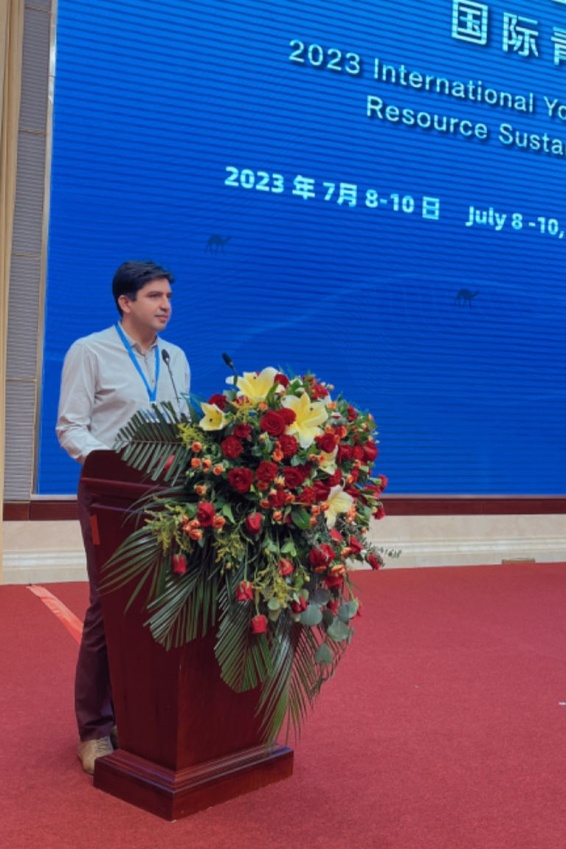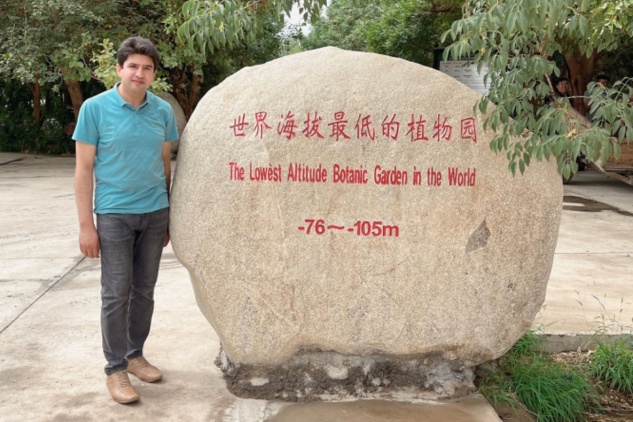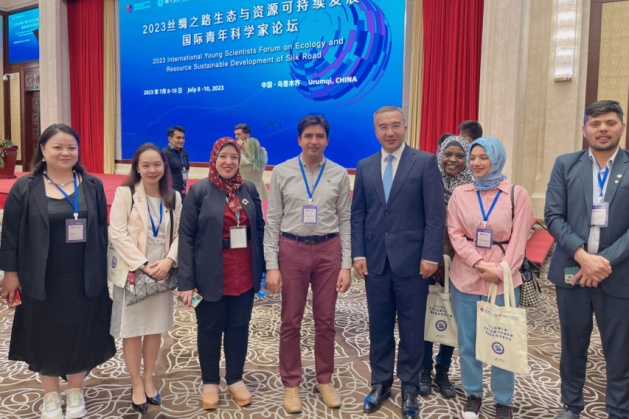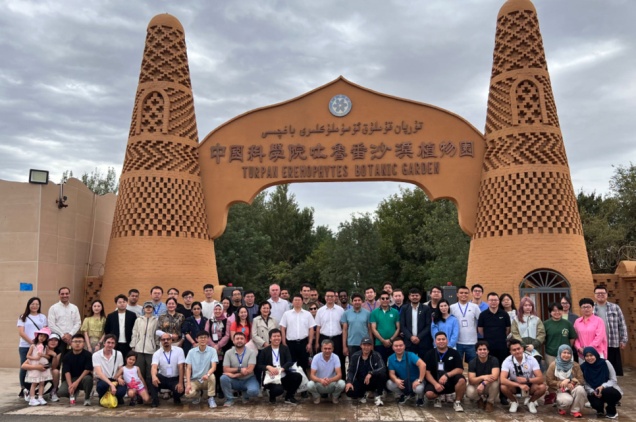


It gives me immense pleasure to share my CAS PIFI journey in China. China is one of the world’s most dynamic and vibrant countries. As a researcher, it has been observed that science is getting a boost in China, and government research funding in China has grown tremendously, resulting in outstanding progress in scientific research. China is home to top universities and government research institutes offering unrivaled opportunities in different scientific disciplines to both Chinese nationals and individuals around the globe.

It was a great opportunity for me to start my early career as a postdoctoral researcher at my host institution — the Xinjiang Institute of Ecology and Geography (XIEG) of the Chinese Academy of Sciences (CAS), which is renowned for its study of natural resources, ecology, and the development of mechanisms for assessing environmental changes in arid lands. My experience as a PIFI postdoctoral fellow has been truly rewarding, as I have been able to further expand my research skills and knowledge in related research topics by working with the excellent scientists and researchers of XIEG. My position was based on the Group of Plant-fungal Interaction. The PIFI period was one of the most memorable experiences of my life for many reasons. I had the privilege to work with a talented and friendly group of scientists, including PhD students and staff. Before I arrived in China, I was welcomed into the group and after arriving, I received a lot of help in settling down in Urumqi, Northwest China’s Xinjiang Uygur Autonomous Region.

The PIFI project has allowed me to develop collaborations with scientists at CAS and I have no doubt that these collaborations will continue long into the future. My principal research interest is to understand how plants adapt to environmental stresses. I have primarily focused on the functions of stress genes in the model plant Arabidopsis, rice, and hot peppers. With the support of PIFI, I had the opportunity to collaborate with my research group in order to further study plant stress response and expand my knowledge of transposon biology. These cooperative studies have been published in several high-impact journals and these professional relationships will be vital for my future success, as will the friendships established in the group.
During my stay in China, I traveled to different cities for outings and to attend scientific conferences. China is a multicultural country and I experienced the warmth of Chinese people and how they welcome expats with great hospitality. Working with my Chinese colleagues, who became my good friends, gave me a lifetime experience that I will always cherish. At XIEG, we annually celebrate Culture Day, on which representatives from different countries, who work or study at XIEG, represent their countries through numerous programs and national dishes. People working at XIEG from other countries all look forward to this day with great enthusiasm every year.

In Xinjiang, the Tianshan Mountains have a variety of wild fruit trees, among them the apple is the dominant species. Apples in this region are severely affected by Apple-canker disease caused by the fungal pathogen Valsa mali, which is a devastating disease resulting in up to 100 percent of tree loss. With the guidance of Professor Zhang Daoyuan, we conducted a series of experiments to study the V. mali effector proteins in order to find durable resistance in apples against canker disease.
Although I had prior experience of life in China during my PhD studies at the Fujian Agriculture and Forestry University, Fuzhou, I found Xinjiang a unique, memorable, and fast-changing region of China, opposite to most people’s notions, including mine. In addition to beautiful landscapes, delicious foods, and daily life facilities, the people of Xinjiang are very warm-hearted, friendly, and cooperative.
Xinjiang is rich in culture and ethnic diversity. I have observed that people in Xinjiang, despite coming from different walks of life, have been working hard to contribute to the development of society.
In addition to providing me with an ideal research platform, and experiencing new cultures and life, CAS PIFI also allowed me to expand my research collaborations. It helped me keep my research interest fresh and broadened my scientific research vision.
Source: Abdul Waheed,
Xinjiang Institute of Ecology and Geography,
Chinese Academy of Sciences